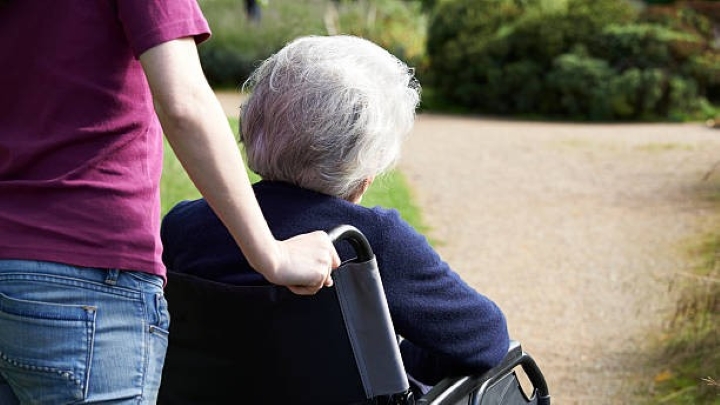Aging Into Disability

By: Michelle Matter
When the Americans with Disabilities Act (ADA) was signed into law 35 years ago by President George H.W. Bush, it marked a turning point in the fight for inclusion. It was a long over-due recognition that people with disabilities have the right to access, opportunity, and dignity. But for many people, disability doesn’t come with a sudden diagnosis or a single defining moment. It comes slowly, and then all at once.
Over the past five years, I’ve watched my mom lose her ability to walk. Then her speech. Then her capacity to care for herself without significant, round-the-clock support. She lives with a degenerative disease that has gradually stripped away so many of the things that once made up her daily life. But even as her body has weakened, her spirit, humor, and presence have remained strong.
It’s one thing to study disability through policy or advocacy. It’s another to live it as a daughter, to see the shifts play out in your family, and to confront how systems either support, or fail, those we love.
There’s a grief in watching someone you love disappear into layers of care needs. But there’s also a quiet clarity, the recognition that this is the reality for so many older adults who once gave everything for others and now need care themselves.
This is where the ADA matters, not just in employment or public access, but in challenging our assumptions about who “counts” as disabled. My mom didn’t start life identifying with the disability community. But now, her survivals depend on accommodations, understanding, and protections that the ADA helped make possible. And even still, we often find ourselves fighting for access, asking for better care coordination, and navigating a maze of systems not designed with her in mind.
The ADA laid the groundwork for equality, but we have to keep building. That means expanding our understanding of disability to include those aging into it. It means supporting family caregivers who are doing the work that our systems often don’t. It means honoring the full lives and complex needs of older adults, especially those who can no longer speak for themselves.
My mom can’t tell her own story anymore, not in words, but she still communicates love. She still smiles. She still teaches me how to show up in the hardest moments with compassion and grace.
On this anniversary of the ADA, I think of her and the millions of others whose stories mirror hers. And I recommit to the work of building a world where aging into disability is not met with silence or struggle, but with support, inclusion, and dignity.

